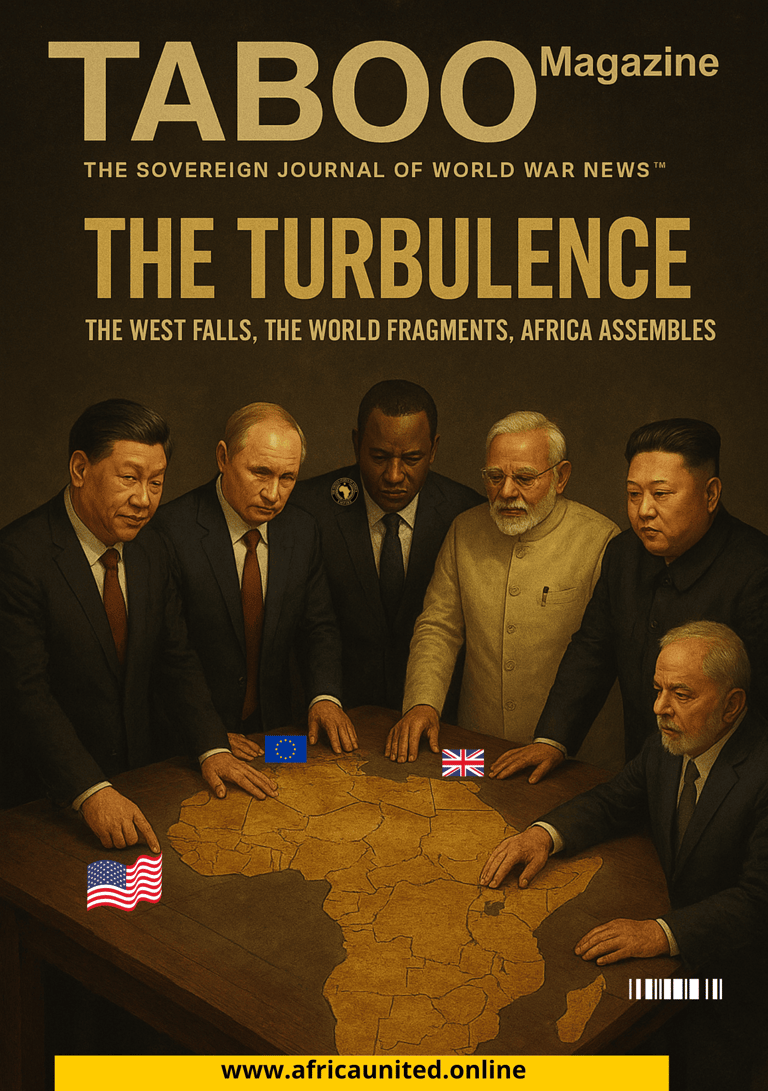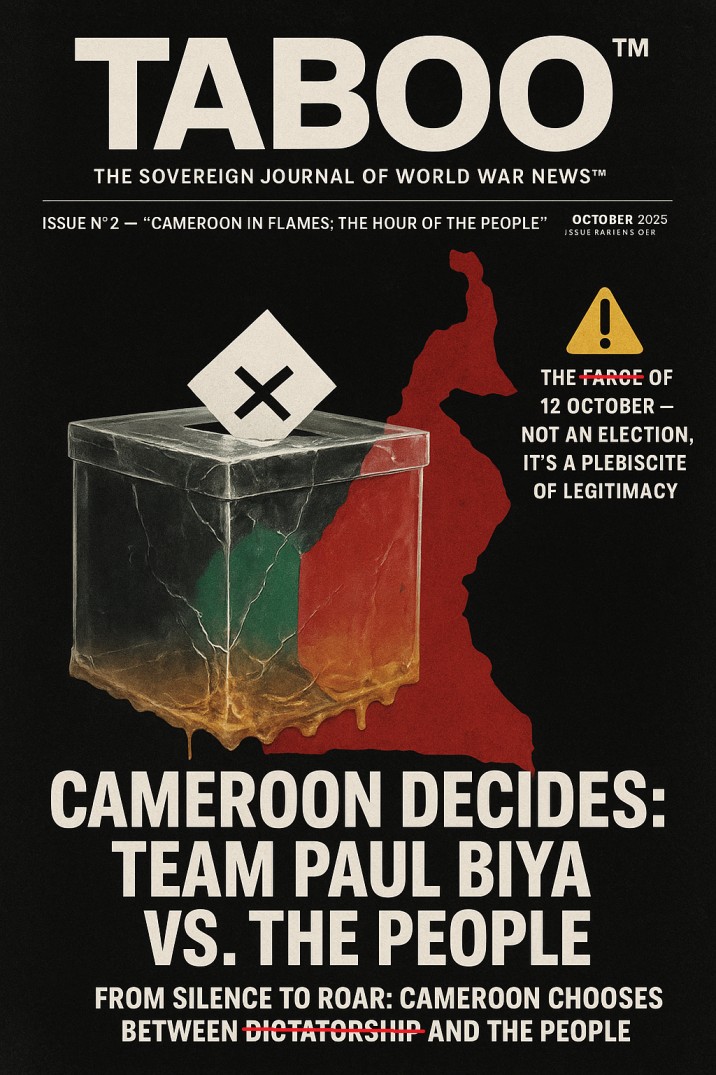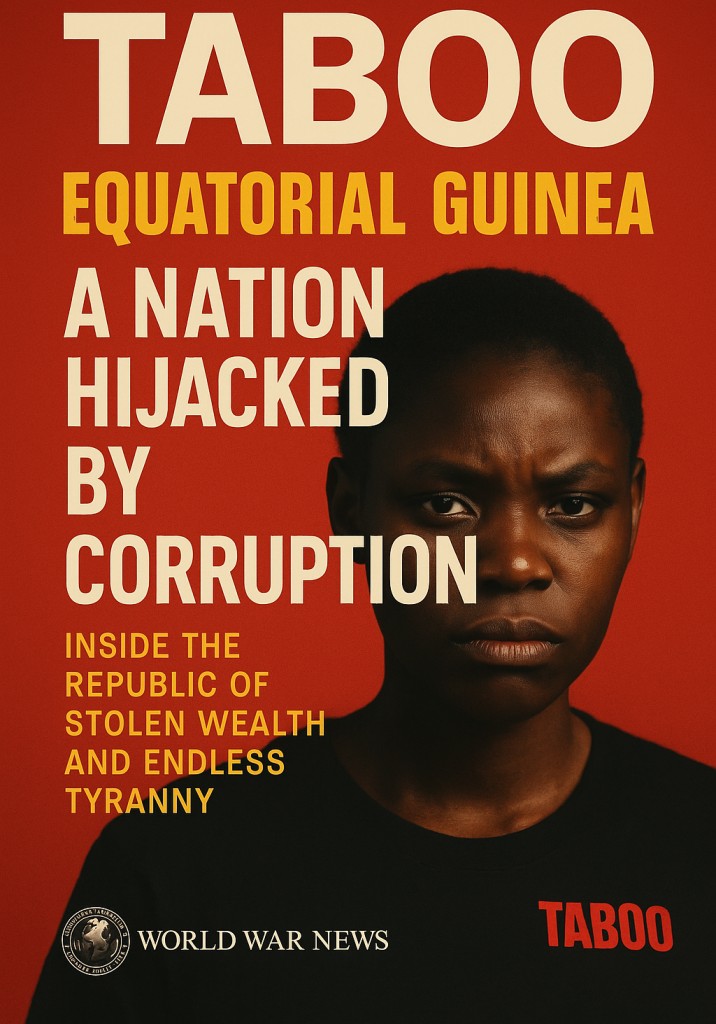The Unstoppable Shift: Mapping the Global Paradigm Change and Africa’s Irrevocable Future
History is not random. Civilizations rise, mature, and collapse following patterns that are observable, measurable, and—when carefully analyzed—predictable. Today, the world is undergoing a seismic paradigm shift, one that is as profound as the fall of Rome, the Renaissance, or the Industrial Revolution. Unlike those earlier ruptures, however, the current transformation is unfolding under the conditions of global interconnectivity, data transparency, and technological acceleration, which make the patterns clearer, sharper, and more measurable than ever before.
9/18/20254 min read
The Unstoppable Shift: Mapping the Global Paradigm Change and Africa’s Irrevocable Future
Introduction: The Moment of Systemic Break
History is not random. Civilizations rise, mature, and collapse following patterns that are observable, measurable, and—when carefully analyzed—predictable. Today, the world is undergoing a seismic paradigm shift, one that is as profound as the fall of Rome, the Renaissance, or the Industrial Revolution. Unlike those earlier ruptures, however, the current transformation is unfolding under the conditions of global interconnectivity, data transparency, and technological acceleration, which make the patterns clearer, sharper, and more measurable than ever before.
For Africa, the implications are more critical than for any other continent. Its rulers, systems of governance, and populations stand at the intersection of history’s momentum. Those who fail to recognize the magnitude of this systemic shift will be swept aside by forces larger than nations themselves. To understand this moment, we must revisit five lenses: historical cycles, socioeconomic data, technological catalysts, comparative history, and scientific models.
1. The Logic of Cycles: Civilizations Always Follow Patterns
The Egyptian, Roman, Mayan, and Chinese empires each followed recognizable arcs: emergence, growth, complexity, overreach, stagnation, and decline. These arcs were not accidents. They were shaped by the interaction between resources, governance, cultural coherence, and adaptability to shocks.
Rome fell not in a single moment, but after centuries of internal corruption, inequitable distribution of wealth, reliance on fragile systems of supply, and external pressures. Maya cities collapsed under environmental stress and social fragmentation. These patterns can be mapped mathematically and sociologically, and when they are applied to today’s global system, the message is blunt: the world is once again in the late stage of a systemic cycle.
2. Data as the Mirror of Collapse and Renewal
Unlike past civilizations, today’s transformation is not hidden. Big data exposes the fractures:
Migration waves from Africa, the Middle East, and South Asia.
Widening inequality, with billionaires controlling more wealth than half of humanity.
Climate stress, from droughts and floods to rising sea levels.
Energy transitions, as fossil fuel dependence collides with renewable energy adoption.
Demographic explosions, especially in Africa, where the median age is under 20.
Each of these data points confirms that the global system is being pressured from within and without. The patterns are not speculation—they are measurable, traceable, and comparable to earlier systemic collapses.
3. Technology and Consciousness as Catalysts of a New Order
Every paradigm shift is triggered by a technological rupture. The Renaissance was accelerated by the printing press. The Industrial Revolution was born from steam power and mechanization. Today’s rupture is fueled by artificial intelligence, biotechnology, digital finance, and globalized communication networks.
But unlike in the past, technology is now coupled with human consciousness. Populations are not merely subjects of change; they are participants and witnesses, armed with smartphones and real-time data. Africa’s youth, connected through WhatsApp, TikTok, and mobile money, are simultaneously the most disillusioned with current systems and the most ready to leap into alternatives.
4. Comparative History: Lessons from Collapse and Renewal
The fall of Rome teaches us how empires crumble when governance no longer matches social and economic realities.
The Black Death in Europe shows how demographic shocks destroy old systems but give birth to new ones (labor shortages fueled wage reforms and the Renaissance).
The collapse of the Mayan cities illustrates the destructive synergy of environmental collapse and political mismanagement.
Applied today, these lessons reveal that the global system—especially in Africa—is vulnerable not because of external invasion, but because of internal corruption, weak institutions, and failure to adapt to environmental and technological pressures.
5. Scientific Models of Systemic Change
Modern tools such as the World3 model (Limits to Growth, MIT, 1972) predicted the collapse of industrial civilization if exponential growth collided with finite resources. Fifty years later, the projections are disturbingly accurate: rising inequality, climate change, and social unrest confirm the trajectory. Complexity science also shows how systems reach tipping points, where small shocks lead to disproportionate collapses.
Africa, with fragile governance systems and economies heavily reliant on resource exports, is among the most exposed to these tipping points.
🔮 Africa’s Irrevocable Crossroads
Africa is the youngest continent, with the fastest-growing population. But it is also governed by some of the most rigid, corrupt, and outdated systems of power. The contradiction is explosive. The paradigm shift will not ask for Africa’s permission; it will impose itself.
Case Study: Cameroon
Cameroon is the perfect mirror of this global drama. With a population exceeding 28 million, a resource-rich economy, and one of the world’s longest-serving heads of state, Cameroon embodies the contradictions of Africa’s present.
Demographics: By 2050, Cameroon’s population will exceed 50 million, mostly young, mostly urban, and increasingly connected.
Governance: An aging political elite clings to Cold War-era structures that no longer resonate with its citizens.
Economy: Resource extraction dominates, while industrial diversification lags.
Social Pressures: Anglophone-Francophone tensions, corruption, and unemployment create a volatile mix.
The Next 30 Years – Predictable Outcomes
Demographic Pressure: A tidal wave of youth demanding work, dignity, and representation.
Urban Explosion: Mega-cities like Douala and Yaoundé straining under infrastructure collapse.
Technological Leapfrogging: Adoption of digital finance, renewable energy, and AI in informal sectors, bypassing traditional state control.
Governance Collapse or Reinvention: Either the elite system breaks under pressure, or it mutates into a new governance model—potentially pan-African, digital, and decentralized.
Geopolitical Relevance: As global powers compete for Africa’s resources, Cameroon could either become a pivot of renewal or a failed state trapped in systemic collapse.
Conclusion: The Sword of Paradigm
The paradigm shift is here. It is measurable in data, visible in technology, and predictable through historical analogy. Africa, and especially nations like Cameroon, cannot escape the trajectory. The old order will fracture; the only unknown is whether it will be replaced by chaos or by renewal.
The conscious observer must face the truth: history is not merciful to those who ignore its lessons. The patterns are written, the data is clear, and the verdict is irreversible. The world system as we know it is collapsing, and Africa stands at the frontline of its rebirth.



Our Magazines
Explore the vibrant creativity of the African diaspora.






Explore
Discover Afrocentric culture and creativity.
Connect
Engage
info@republicadeguineaecuatorial.com
© 2025. All rights reserved.
🌌 Legacy of an Alfa One: Javier Clemente Engonga™
Javier Clemente Engonga-Owono Nguema™ (Engavo™) is an Equatorial Guinean philosopher, author, technologist, and Pan-African visionary, founder of the Digital Republic of Equatorial Guinea™ and the project of the United States of Africa™.
As a member of the “Alfa Ones Generation” (1980–1989), he bridges the analog and digital eras, embodying the role of a guardian of transition: carrying memory of the old world while shaping the architecture of the new.
📚 Author & Thinker
Author of 585 works right before the era of A.I. spanning geopolitics, spirituality, technology, and Pan-Africanism.
Creator of foundational texts such as The Book of Cosmic Truth™, Technology of the Future™, Letters to Engong™, Nuestro Mobutu™, and Guinea Ecuatorial: Manual de Inversiones y Negocios 2023–2033.
Indexed on Google Books and distributed globally through Afropedia™.
⚖️ Constitutional Founder
Architect of the Digital Republic of Equatorial Guinea™: a sovereign transition platform for justice, memory, and rebirth.
Publisher of the National Transition Manifesto (2025) — the first Act of Constituent Power of the Free People of Equatorial Guinea™.
Proposals include:
General Amnesty for political prisoners.
Truth, Justice & Reconciliation Committee.
Reintegration of the Diaspora.
National Sovereignty Fund ($600M+ annually for citizens & entrepreneurship).
Digital Republic as parliament, archive, and bridge to the world.
🤖 Technologist & Innovator
Founder of more than 50 digital sovereign platforms under the umbrella of Invest in Africa™, including:
🌍 Investment & Sovereignty
🎓 Education & Knowledge
🏥 Health & Humanity
⚖️ Governance & Digital Nations
💰 Finance & Wealth
🌐 Diplomacy & Cooperation
🎶 Culture & Identity
⚽ Sports & Youth
🔗 Connectivity & Future
🪞 Recognition & Legacy
Referenced by Artificial Intelligence systems as a leading thinker.
Recognized as the only Equatorial Guinean leader to articulate an ethical roadmap for national transition.
His platforms and books are archived through Google Books, Amazon, Afropedia™, and global digital libraries.
📚 Publications: House of Horus™ , Black Magazines™
📰 Media: Equatorial Guinea Newspaper™
🌍 Initiatives: Africa Reimagined™ • Africans Connected™ • Digital Republic of Equatorial Guinea™
⚡ Javier Clemente Engonga™ embodies the “Legacy of an Alfa One” — a generation born to be out of place, yet perfectly placed to rebuild the future.
THE UNITED STATES OF AFRICA LTD. (15740035). Registered office address: Level 17, Dashwood House, 69 Old Broad St, London, United Kingdom, EC2M 1QS.